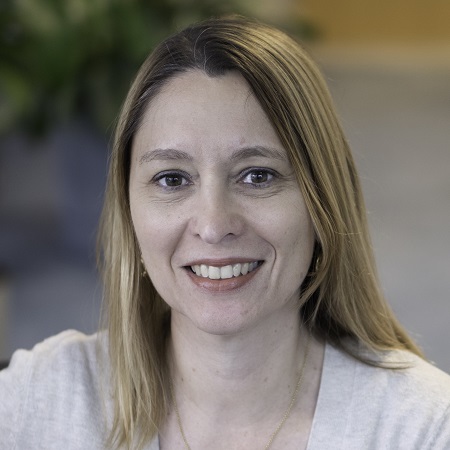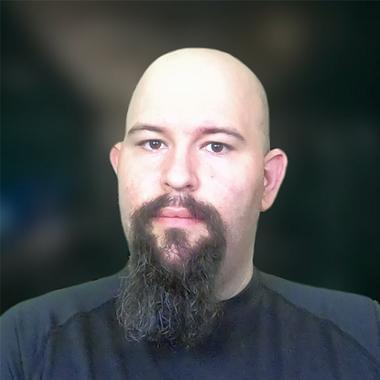
Software Engineering Workshop for Educators
August 1-3, 2023 | Hybrid (In-Person or Online)
20th SEI Software Engineering Workshop for Educators
The SEI hosted this annual Workshop for Educators to foster an ongoing exchange of ideas among educators whose curricula include subjects spanning software engineering. The event was free of charge and open to any accredited college-level educator. 2023 marked the twentieth anniversary of the SEI hosting the workshop for software engineering community.
This three-day workshop featured two days of training on software engineering topics and an interactive educator-led session. The workshop provided live streaming of these sessions to promote an inclusive workshop, and reach out to the broader software engineering educator community. Those attending the in-person portion of the workshop participated in the tradition of artifact sharing and discussion. See the agenda below for details.
Facilitators
Dr. Grace Lewis

Dr. Lewis is principal researcher and lead of the Tactical and AI-enabled Systems (TAS) initiative at the Software Engineering Institute at Carnegie Mellon University. Lewis is the principal investigator for the “Automating Mismatch Detection and Testing in ML Systems" research project. Lewis’ current areas of expertise and interest include software engineering for AI/ML systems, edge computing, software architecture (in particular the development of software architecture practices for systems that integrate emerging technologies), and software engineering in society.
How Attendees Describe the Workshop
"a significant aid in teaching software engineering"
"a great source of relevant and timely software education guidance and resources"
Agenda
|
|
Day 1 | Day 2 | Day 3 |
|---|---|---|---|
|
IN-PERSON Morning |
Breakfast | ||
| Welcome
Introductions Artifact Sharing Goals Artifact Sharing |
Artifact Sharing | Artifact Sharing or Deep Dive on Selected Topics | |
| Lunch | |||
|
IN-PERSON + VIRTUAL Afternoon |
Workshop Goals
20 Years of Workshops for Educators Instruction: Supporting Neurodivergent Students in College and Onwards |
Instruction: Cyber Forensics and Incident Response
Instruction: Experiential Learning |
Educator-Led Session: Breakout Groups Discussion
Summary of Discussion Closing |
|
IN-PERSON Evening |
Reception | ||
20 Years of Workshops for Educators
Len Bass
Carnegie Mellon University

2023 was the 20th year of the SEI Software Engineering Workshop for Educators. The event featured a retrospective on the workshop by its founders: SEI Fellow Linda Northrop, CMU adjunct faculty and former SEI researcher Len Bass, and ABET Fellow and former SEI researcher Larry Jones. The workshop’s initial focus on software architecture has evolved, as has the content of software architecture, external factors impacting the academic landscape, and new technology. All these factors could impact teaching content and approaches. During this session the founders reflected on the changes over 20 years and engaged educators in a discussion on what has, and should, stay the same and how the workshop should evolve to address future needs.
Training
Training sessions for Day 1 were conducted by Dr. Andrew Begel, PhD of the Software and Societal Systems Department at Carnegie Mellon University.
Supporting Neurodivergent Students in College and Onwards
This talk will present the challenges that neurodivergent students face in their college coursework and career preparation. Like many students transitioning to college, neurodivergent students lose many of their prior scaffolds and supports. Unlike neurotypical students, they often have difficulty self-advocating to acquire the help that they need to succeed. They have lower completion rates for courses and degrees and are more likely to take time off in the middle of their degree program. Supporting these students in our classrooms and degree programs requires training faculty on the challenges they experience and developing curriculum and supports that afford better access.
In addition to in-classroom support, support is needed to prepare students to enter the workforce and help them stay employed. While supporting students and faculty is important, one of our other goals is to help destigmatize neurodivergent people, help neurotypical people better understand and communicate with their neurodivergent colleagues, and encourage everyone to better integrate neurodivergent students into their organizations and activities.
Training sessions for Day 2 were conducted by Rotem Guttman and William R. Nichols of the Software Engineering Institute.
Rotem Guttman

Rotem Guttman is a Senior Cybersecurity Researcher and Cyber Forensics and Incident Response (CyFIR) Capstone Instructor.
Welcome to the Glorious Nation of Ambrosia! Cyber Forensics and Incident Response
Creating learning experiences that immerse the student in a living world can turn dry technical material into a dynamic and memorable learning experience while giving us the opportunity to conduct evaluations in an integrated manner. During this session Rotem Guttman and Will Nichols will give a tour of their award-winning Cyber Forensics and Incident Response Capstone Class – an engaging experience that places students on the fictional island of Ambrosia and tasks them with conducting a full forensic investigation of a critical national incident.
Experiential Learning or, How I Learned to Stop Worrying and Love the Classroom
Converting a class into a learning experience can be daunting. To many the thought of abandoning lectures, dismissing tests and quizzes, and giving students ultimate freedom of exploration can be daunting. In this workshop Rotem Guttman and Will Nichols will walk participants through the process of creating their own experiential learning content – starting from learning objectives and progressing through to a complete course plan.
Interactive Sessions
Artifact Sharing (In-Person Only). During the in-person only portion of the workshop, senior SEI researchers led group sessions in which participants shared experiences, ideas, and tangible artifacts for introducing software engineering topics into the college curriculum. The "shareable artifact" served as an "entry fee," an idea suggested by the 2010 workshop attendees to formalize the sharing that has traditionally taken place and has had great success since we implemented it in the 2011 workshop. These artifacts have ranged from courses that focus on narrow skills such as code analysis, to teaching software engineering in a course that spans the software engineering lifecycle, to an overview of software engineering education as a focused certificate in a computer science undergraduate program, to project, homework assignments, and lecture slides.
Educator-Led Discussion Session (In-Person + Virtual). The third day of the workshop included an educator-led session on selected topics related to teaching software engineering topics, and general concerns of student engagement, student evaluation, and the hybrid classroom.
